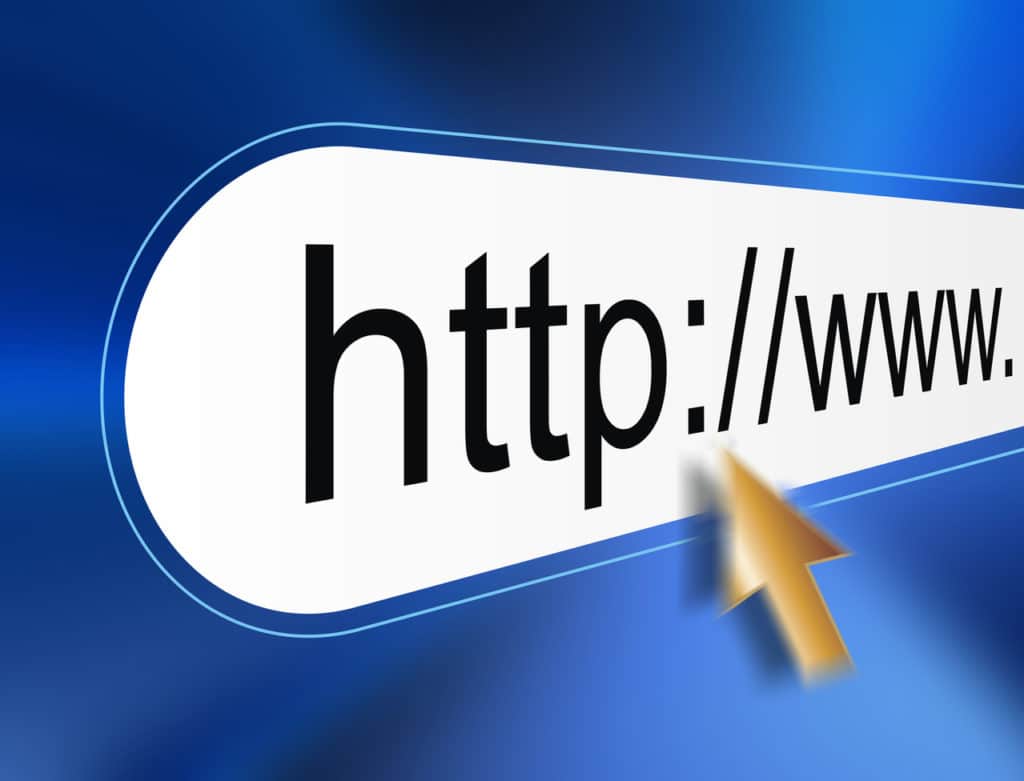By enabling customers to find your organisation online, and helping to drive traffic to your website through the search engines, your domain name plays an important role in determining the success of your business.
 Like your company name and your logo, your domain name is integral to your brand identity. We’re going to share some simple tips to keep in mind when you create a domain name for your business, but before we do, let’s answer a couple of common questions.
Like your company name and your logo, your domain name is integral to your brand identity. We’re going to share some simple tips to keep in mind when you create a domain name for your business, but before we do, let’s answer a couple of common questions.
We’ll spare you the technical jargon here and keep this really simple. In the world of the internet, a domain name works very much like a physical address does in the real world. When you type it into your browser, it’s like punching a postcode into your Sat Nav – it contains all the location information your browser needs to be able to take you directly to the website or web page you want.
In fact, every piece of information on the internet has its own unique numeric identifier, but because it would be virtually impossible for mere humans to recall these each time they want to pay a visit, a more memorable domain name that links to the numeric address is used.
It doesn’t have to, and some businesses deliberately opt for something different, but registering a domain name that matches your company name – as we’ve done ourselves with mmd.local, avoids any risk of confusing customers, and makes it much easier to direct people to your website.
There’s a lot of misinformation around this question. Some business owners feel under pressure to purchase domain names representing every possible combination of their company name, the services they offer, and with different extensions (.co.uk, .com etc – more on these shortly), under the impression that ‘pointing’ all of these at their website will help with SEO.
Up until a few years ago there was some truth in this, but today there’s no real value in registering multiple domain names – although acquiring .com (assuming it’s not already your primary domain) is always a good idea, as its ubiquity means many people will enter this by default.
If you’re contacted by a domain name company offering you your domain name with a different extension, you might be tempted to purchase it just so that no one else can have it. If you genuinely have a use for it, by all means go ahead, but buying up numerous combinations and keeping them registered can be expensive and bring little or no return.
When you create your domain name there are a number of important things you should keep in mind:
The shorter the better. A long domain name is more likely to be input incorrectly.
Avoid anything that’s likely to cause confusion. If your domain is easy to mishear, misspell or mistype, prospective customers could find themselves in the wrong place or unable to find your website. Steer clear of hyphens, numbers and symbols in particular.
Ideally you will have planned your domain name at the same time as your business name, and it will either be the same, an abbreviation, or – as mentioned earlier, a strapline used in your branding. Either way, try to make sure it’s as easy to remember as possible.

For most businesses, social media plays a vital role in marketing. Before registering a domain name therefore, it’s advisable to check the same name is available to use on the social networks you plan to utilise.
An extension is the suffix – such as .com, .co.uk, .org or .net – which appears at the end of every domain name. An extension gives clues to the nature and location of a business – .com denotes a company that trades internationally, .co.uk – a company trading in the UK, .org – a charity or not for profit organisation, .net – a technical organisation and .info – an information-based organisation.
For most UK businesses .com or .co.uk are likely to be their extension of choice – depending on whether they’re trading locally or internationally, but in recent years, many new extensions including .biz, .ltd and .uk have been made available. Your choice may be limited by availability, but you should choose your extension carefully as some people believe the more established ones infer more credibility.
Your domain represents a valuable business asset that you must take efforts to secure. As the domain owner, you need to ensure you have control of the account where the name is registered, and you must keep your contact details up to date.
You should receive a reminder in plenty of time when your domain name comes up for renewal, but given its importance, it makes sense to put a manual alert in your diary so there’s no danger it gets overlooked. If the worst should happen, your account could be temporarily suspended, causing you to lose business while you go through the process of reactivation and eventually, it could be made available for sale again and may be bought by a competitor.
If you have a question about any aspect of website design or build or would like to know more about domain names, get in touch now by sending us a message or calling us on 0118 380 0131 for a chat – we’d love to talk!
